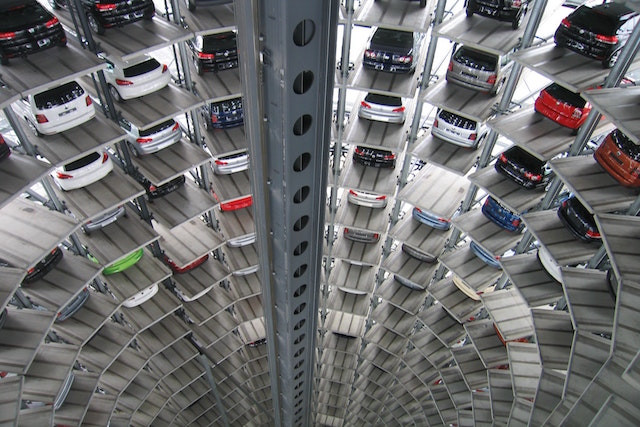The automotive sector in Luxembourg is a major pillar of industry, employing more than 10,000 people and supplying components to all major European car manufacturers (as reported on Delano here). In a Q&A interview with Delano, Georges Santer, general secretary of the Luxembourg automotive sector’s industry association (Ilea), discusses the sector’s importance on a national and international level and describes the vast number of R&D activities that are carried out from the grand duchy.
Delano: How important is the automotive sector to the Luxembourg economy?
Georges Santer: The automotive sector in Luxembourg is a major pillar of industry. We estimate that automotive is the 2nd most important industry sector with a workforce of around 10,000 people. In terms of R&D expenditure, the automotive sector ranks first in the EU. This is also true for Luxembourg where some 1,950 people work in R&D directly. Luxembourg automotive products are exported to all continents and major export countries are: Germany, France, Italy, UK, Spain, Japan, USA, China and Sweden.
Delano: What kinds of automotive activities are carried out in Luxembourg?
GS: Ilea members are active in the following domains: automotive component production sites; Tier1 and Tier2 engineering and application centres; R&D centres (public and private) in automotive and mobility; R&D centres in materials and composite materials; vehicle homologation services; mobile connectivity service providers; manufacturing solutions providers; automotive consulting.
Main automotive components produced in Luxembourg are, for example, sensors, radar-based advanced driver assistance systems, thermostats, truck tires, fuel venting systems, interior trim components, boxes and lids for car batteries, windshield washer systems, windshields, gas control products and battery management components.
Delano: How is the sector in Luxembourg viewed internationally?
GS: Luxembourg is a major place for the automotive industry’s supply chain with an exceptional business environment. All major car manufacturers (from France, Germany, United Kingdom, etc.) can be supplied from Luxembourg on a same day delivery basis, thanks to a central location at the heart of Europe and well-developed transportation and communication networks.
Top tier automotive suppliers enjoy Luxembourg’s central location in Europe and its unique capacity to design both research and business activities with a tailor-made regulatory framework.
Luxembourg’s stability and cooperative labour situation ensures “on-time” delivery, while the government strongly backs R&D projects.
Delano: What are the key challenges facing the industry at this time?
GS: The main challenges facing our sector are: decarbonisation and reducing CO2 emissions and digitalisation--automated and connected driving. Both are enablers for safer, smarter and sustainable mobility. The 3rd mobility package recently published by the European Commission contains proposals on reducing CO2 emissions from commercial vehicles, on increasing the mandatory safety features in cars, on paving the way to automated driving, and on preparing the ground for next-generation battery manufacturing in Europe. All these proposals depend on innovative technology solutions, and the aim must be to develop, industrialise and manufacture them in Europe. Therefore, we need to continue investing in R&D and to foster innovation.
The association of Luxembourg automotive suppliers (Ilea) was established in 2002 with the mission of providing a permanent link between its 25-member companies as well as defending their shared economic and social interests on a national and international level. Hosted by Fedil (Luxembourg’s industry association), it is also a member of Clepa, the European association of automotive supplies.
